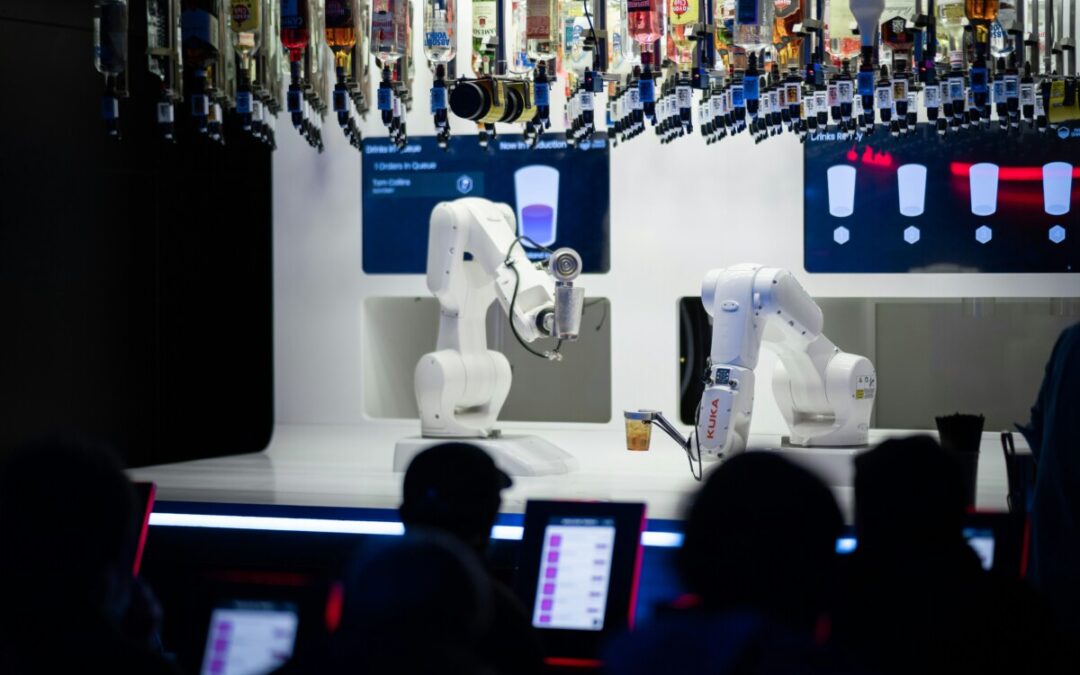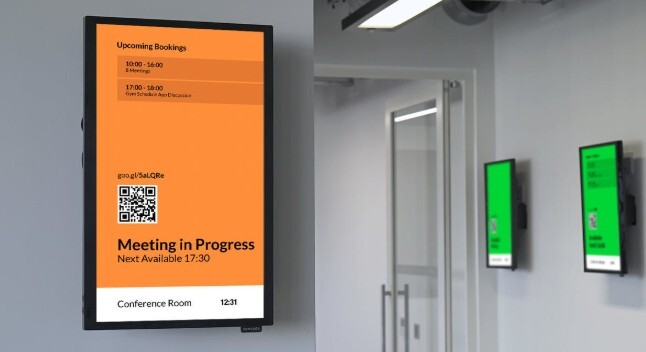Chatbot technology has gained popularity across the hospitality industry. However, some owners of these hospitality industries are still unaware of what chatbots can do and what role it plays to help customers. To get an understanding of what a chatbot does for the hospitality industry, let’s dig a little deeper.
How are Chatbots utilized in hospitality industry?

A chatbot is a form of digital technology that can perceive and respond accurately to human interactions and be deployed on behalf of a hotel or any other business in the hospitality industry. The chatbot is designed to mimic meaningful interactions a customer might have with an actual employee. The chatbot will be used as a digital customer service agent, responding to queries and solving customer questions.
Types of Chatbots:
The chatbot works by understanding customer queries and provides them answers related to their questions. Chatbots are broadly divided into two types:
1. Rule-Based Chatbots
As the name suggests, these chatbots work on the basic principle. A well-defined code is fed to them, and they interact with customers in the same sense. Here we cannot modify the working pattern, and it is a type of chatbot where buttons are displayed on the screen, and the user has to feed data into it to use it. So this is somehow inconvenient to customers who are not used to asking questions by providing them.
2. AI Based Chatbots
It is the advanced alternative of rule-based chatbots for the hospitality industry. Here chatbots are much more interactive than they are in their rule-based form. Here customers can talk to these chat boxes, and virtually, without touching the chatbot, they can ask their queries. These chatbots can understand customer needs by interpreting specific keywords that the customer speaks to; it analyses the questions and responds accordingly. It is the best version of a chatbot as here a customer can have an experience as if he is talking to one of the staff members.
How Chatbots help in Multiplying revenue in Hospitality industry ?

1. 24X7 Customer Service
Customer service is one of the vital services looked at with high expectations. So a chatbot has that much efficiency that it can work 24X7 without any difficulty. This means customers can receive a timely reply, regardless of the time of day, even when you might not have customer service staff to handle them personally.
2. Boost Direct Bookings services
For those working in the hospitality industry, expansion of direct bookings is a top priority. Here, a chatbot for the hospitality industry plays a crucial role. It can address multiple calls and speed up the conversion process, and try to answer as soon as possible once the customer is satisfied and makes direct bookings. This saves the money of the hospitality industry, as now they have not to pay commissions to the middle man.
3. Multiple language support
The hospitality industry deals with customers worldwide; thus, interacting in different languages at customers’ convenience is beneficial for business. Whether you are using a rule-based or AI-based chatbot, you will get the option of multilingual in both. With AI chatbots, this process speeds up as the AI helps understand customers’ language and try to solve all queries.
4. A More Efficient Customer Experience
In addition to providing 24X7 availability for online customer contact service, chatbots also can enhance the overall performance of the in-person customer experience. Using a mobile app and chatbot technology makes it possible to keep track of all check-ins and check outs; thus, there is no need to visit the hotel reception desk, eliminating waiting times. Moreover, no human resources are needed for these types of works.
5. Reduced Burden on Customer Service Staff
There is plenty of work in the hospitality department; thus, it becomes a tiring and hectic job for customer service staff. A chatbot can mitigate this work pressure by providing fast responses, reducing backlogs, and sorting many of the most common or straightforward customer service requests, leaving staff to handle trickier cases.
6. Follow Up With Your Guests
Hotels frequently see the value of following up with guests after they have checked out to receive their feedback and review related to their stay. These reviews help in marketing the services of the hospitality industry. Chatbots are ideal for these cases. They reach out to guests worldwide through various channels, learn about what customers like and what customers did not enjoy, and keep the record in the database. This data is further used in improving the facilities in the hospitality service.
Future of a Chatbot in the hospitality industry

As chatbot technology keeps developing, AI-based chatbots will probably be utilized in many client touchpoints. This could imply that chatbots will be deployed on hospitality services via websites, media stages, cell phone applications, and different electronic gadgets.
While rule-based chatbots will probably stay legitimate for years to come, the benefits of AI-based chatbots are certain. As this innovation becomes simpler to work with and more affordable to carry out later, it will be visible that chatbots have taken away many services from the hospitality industry. In the upcoming days, it will maximize the efficiency of these services.
As audio recognition technology grows in the market and users become more comfortable using voice assistant applications, chatbots are likely to evolve more than any of those text-based assistants. In the future, one of the significant developments is expected to be improved language translation through voice recognition, allowing anyone, anywhere in the world, to communicate with a chatbot verbally, be understood, and receive a reply in the language they used.
Why is ChatBot important for the hospitality industry?
Chatbot technology has evolved rapidly and forms a crucial part of many hotels’ marketing and customer service strategies. However, it is still unfamiliar to many hotel owners, and the process of adopting chatbot technology can seem daunting, especially given the abundance of chatbot products available. But once these owners start to rely upon chatbot work and services, they can grow their business with many paces.
ERP vs CRM: Key Differences, Strengths, and How Clavis’ ERP Drives Organizational Success
In the digital age, businesses strive to leverage advanced tools to streamline operations, boost productivity, and foster better customer relationships. Two pivotal software solutions that play a significant role in achieving these goals are Enterprise Resource Planning (ERP) and Customer Relationship Management (CRM) systems. While these tools may seem similar at first glance, they serve distinct purposes and offer unique benefits, and it is important to understand why you may need one or the other—or both in tandem.
1. What is ERP?
ERP stands for Enterprise Resource Planning, a comprehensive software suite that manages and integrates core business processes. These processes often include:
- Finance and accounting
- Human resources
- Supply chain management
- Inventory and order management
- Manufacturing
ERP systems centralise business data, allowing various departments to collaborate seamlessly and make informed decisions based on real-time insights.
Core Features of ERP Systems
- Centralized Data Management: Consolidates information from all business departments into one platform.
- Process Automation: Automates repetitive tasks to improve efficiency.
- Scalability: Can grow with your business, accommodating new functionalities as needed.
- Compliance Support: Helps organisations meet regulatory requirements.
- Advanced Analytics: Provides detailed insights to support strategic decision-making.
2. What is CRM?
CRM, or Customer Relationship Management, is software that focuses on managing a company's interactions with current and potential customers. The primary goal of a CRM system is to improve customer satisfaction, retention, and acquisition through personalised communication and efficient management of sales and marketing activities.
Core Features of CRM Systems
- Contact Management: Maintains detailed records of customer interactions and preferences.
- Sales Pipeline Tracking: Manages leads and monitors the sales process.
- Marketing Automation: Facilitates email campaigns, social media management, and more.
- Customer Support: Enhances post-sale services through ticketing systems and live chats.
- Data-Driven Insights: Helps identify trends to fine-tune marketing and sales strategies.
3. ERP vs. CRM: Key Differences
While ERP and CRM are essential for business success, they cater to different aspects of operations.
|
Feature |
ERP |
CRM |
|
Primary Focus |
Internal processes and operational efficiency |
Customer interactions and relationships |
|
Key Functions |
Accounting, supply chain, HR, inventory |
Sales, marketing, customer service |
|
Target Audience |
Internal stakeholders |
Sales, marketing, and customer support teams |
|
Data Integration |
Focuses on consolidating operational data |
Specialises in customer-centric data |
|
Scalability |
Enterprise-wide |
Primarily focused on customer management |
4. The Strengths of ERP Systems
ERP systems are the backbone of operational efficiency. Their key strengths include:
- Holistic Business View: ERP provides a comprehensive view of business operations by integrating data across departments.
- Cost Reduction: Automating processes reduces manual labour and errors, saving time and money.
- Improved Compliance: Centralized data simplifies regulatory reporting and ensures adherence to standards.
- Inventory Optimization: Enhances inventory management, reducing waste and ensuring timely procurement.
- Agile Decision-Making: Real-time data insights help leaders make swift, informed decisions.
5. The Strengths of CRM Systems
CRM systems shine in the realm of customer relationship management, with benefits such as:
- Enhanced Customer Insights: Tracks and analyses customer preferences to tailor interactions.
- Improved Customer Retention: Personalization and timely communication foster loyalty.
- Streamlined Sales Processes: Automates lead management, reducing manual intervention.
- Marketing Optimization: Helps segment audiences for targeted campaigns.
- Boosted Collaboration: Facilitates alignment between sales and marketing teams.
6. ERP and CRM: Complementary Tools
Though distinct, ERP and CRM systems are complementary and often integrated to deliver maximum value. For instance:
- CRM manages the front-end relationship with customers, while ERP handles back-end processes like inventory and order fulfilment.
- Together, they provide a seamless flow of information, ensuring that customer-facing teams have accurate, up-to-date data on orders and services.
7. Clavis' ERP: The Ultimate Solution for Organizational Success
Clavis' ERP stands out as a robust ERP solution designed to address the multifaceted needs of modern businesses. Here’s how it can drive your organisation's success:
a) Comprehensive Integration
Clavis' ERP integrates seamlessly with existing systems, including CRM platforms, to unify your business processes.
b) Real-Time Data Analytics
With Clavis' ERP, decision-makers can access advanced analytics tools that offer actionable insights into performance, trends, and potential opportunities.
c) Tailored Functionality
Highly customisable to suit the unique needs of businesses across industries, Clavis' ERP works for all—from manufacturing to retail and more.
d) Enhanced User Experience
The platform boasts an intuitive interface, making it easy for employees to adopt and use effectively.
e) Cloud Capabilities
Leverage cloud-based deployment for flexibility, scalability, and cost savings.
9. Choosing the Right Solution for Your Business
When deciding between ERP and CRM—or opting for an integrated approach—consider the following:
- Business Goals: Identify whether your primary focus is operational efficiency (ERP) or customer relationships (CRM).
- Scalability: Choose a solution that can grow with your business.
- Budget: Evaluate the total cost of ownership, including deployment and maintenance.
- Customization: Ensure the platform can be tailored to your specific needs.
Final Thoughts
ERP and CRM systems are indispensable for businesses aiming to optimise operations and enhance customer relationships. While they serve distinct purposes, their integration offers unparalleled value. With Clavis' ERP, you gain a robust tool that streamlines your operations and integrates seamlessly with CRM systems to provide a holistic business solution.
Some other posts you might be interested in.

AI + RPA: The Ultimate Duo to Scale Your Business Faster and Smarter
Scaling a business isn’t just about doing more—it’s about doing more intelligently. As digital transformation redefines the modern enterprise, two technologies have emerged as transformative powerhouses: Artificial Intelligence (AI) and Robotic Process Automation...

Effortless and Effective Digital Signage for Every Organization with Clavisign
Explore how digital signage from Clavisign is transforming business communication and engagement.

15 Applications of Blockchain in Healthcare
"Blockchain" refers to a shared irreversible record of a chain of transactions, each of which is made up of one block, and which is held together by cryptographic keys ("hashes"). These keys or signatures are maintained in shared ledgers and connected by a network of...
